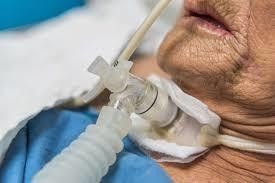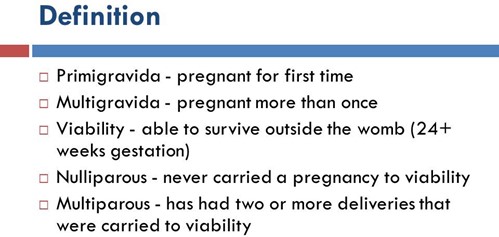The nurse is performing tracheostomy care for a client who underwent a laryngectomy for laryngeal cancer. During the procedure, the client begins to cough and is unable to clear the secretions. After the nurse suctions the airway, which finding indicates the intervention was effective?
Absence of coarse crackles.
Increase in respiratory rate.
Increase in breath sounds.
Absence of fine crackles.
The Correct Answer is A
A) Correct - The absence of coarse crackles indicates that the airway has been cleared of secretions effectively, and the lung sounds are clearer.
B) Incorrect - An increase in respiratory rate could indicate distress rather than the effectiveness of the intervention.
C) Incorrect - An increase in breath sounds may not necessarily indicate the effectiveness of the intervention, as the quality of breath sounds matters more than the increase.
D) Incorrect - The absence of fine crackles might not directly indicate the effectiveness of the intervention, as other factors can influence lung sounds.

Nursing Test Bank
Naxlex Comprehensive Predictor Exams
Related Questions
Correct Answer is A
Explanation
When a primigravida client confides in the practical nurse (PN) about being in an abusive relationship, the primary concern is the safety and well-being of the client and her unborn child. Providing contact information for a women's shelter is the most appropriate response in this situation. Women's shelters provide a safe haven for individuals experiencing domestic violence and can offer immediate assistance, including shelter, counseling, legal support, and other resources.
Let's evaluate why the other options are incorrect:
B. Safety plan to keep in a purse at all times:
While a safety plan is essential for individuals experiencing domestic violence, providing a safety plan alone may not address the immediate danger the client is facing. It is crucial to prioritize the client's safety by connecting her with a women's shelter where she can receive comprehensive support.
C. Visit summary documenting the report of abuse:
While it is important to document any reports of abuse, providing a visit summary alone does not address the urgent need for the client's safety. Documentation can be helpful for future reference, but immediate action should be taken to ensure the client's well-being.
D. Paperwork needed to file a restraining order:
Filing a restraining order is a legal step that may be necessary in cases of domestic violence, but it should be pursued after ensuring the client's immediate safety. Providing paperwork alone does not address the client's immediate need for a safe environment. Connecting the client with a women's shelter is a more appropriate course of action to ensure her safety and well-being.

Correct Answer is ["B","D","E"]
Explanation
A) Incorrect - Hyperglycemia typically does not lead to weight loss. In fact, it can result in weight gain due to the body's inability to properly use glucose for energy.
B) Correct - Hyperglycemia can lead to an increased sensation of hunger as the body's cells are not effectively receiving the glucose they need for energy, causing the person to feel hungry.
C) Incorrect - Cool and clammy skin are not typical symptoms of hyperglycemia. Hyperglycemia can lead to dry skin, but it does not cause cool and clammy skin.
D) Correct - Hyperglycemia often leads to increased thirst and urination. Excess glucose in the blood can cause the kidneys to work harder to filter and eliminate the glucose, leading to increased fluid intake and subsequently increased urination.
E) Hyperglycemia can cause dehydration, leading to dry, flushed skin and sometimes headaches due to electrolyte imbalances and reduced blood flow to the brain.
Whether you are a student looking to ace your exams or a practicing nurse seeking to enhance your expertise , our nursing education contents will empower you with the confidence and competence to make a difference in the lives of patients and become a respected leader in the healthcare field.
Visit Naxlex, invest in your future and unlock endless possibilities with our unparalleled nursing education contents today
Report Wrong Answer on the Current Question
Do you disagree with the answer? If yes, what is your expected answer? Explain.
Kindly be descriptive with the issue you are facing.
